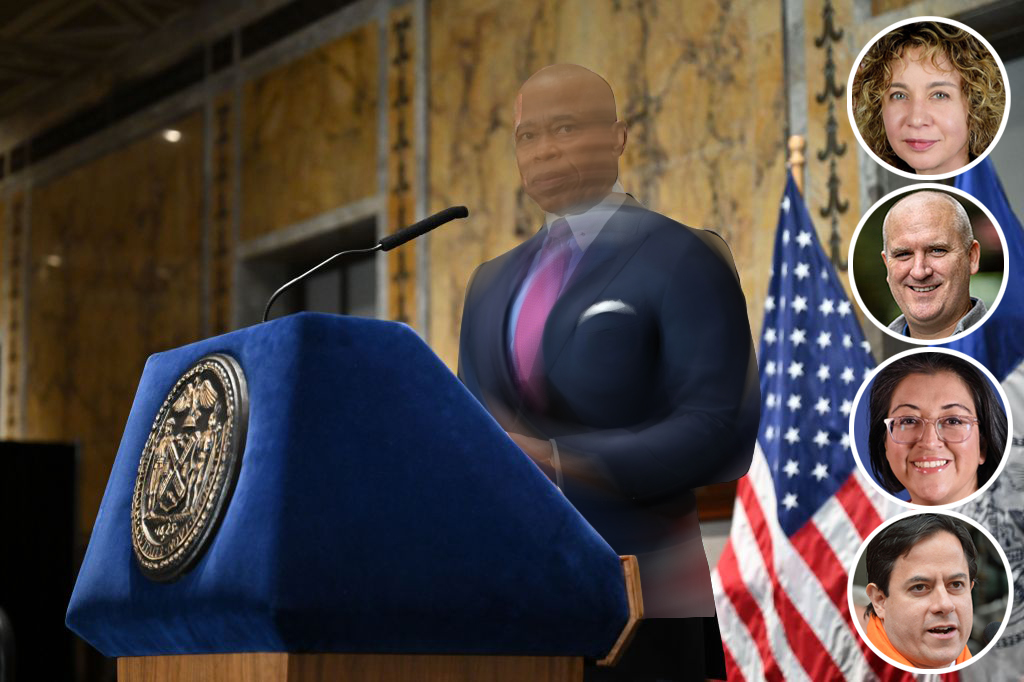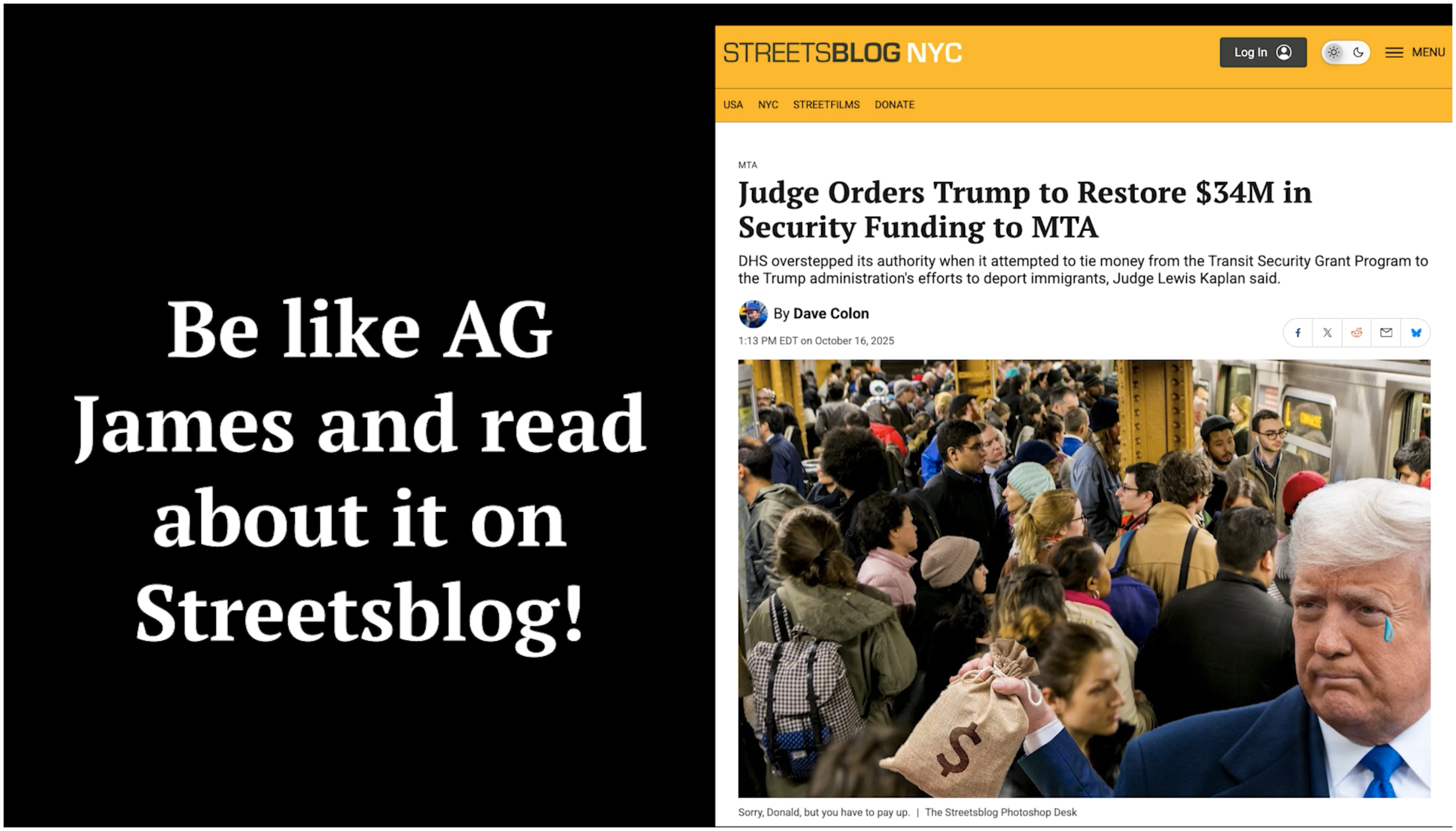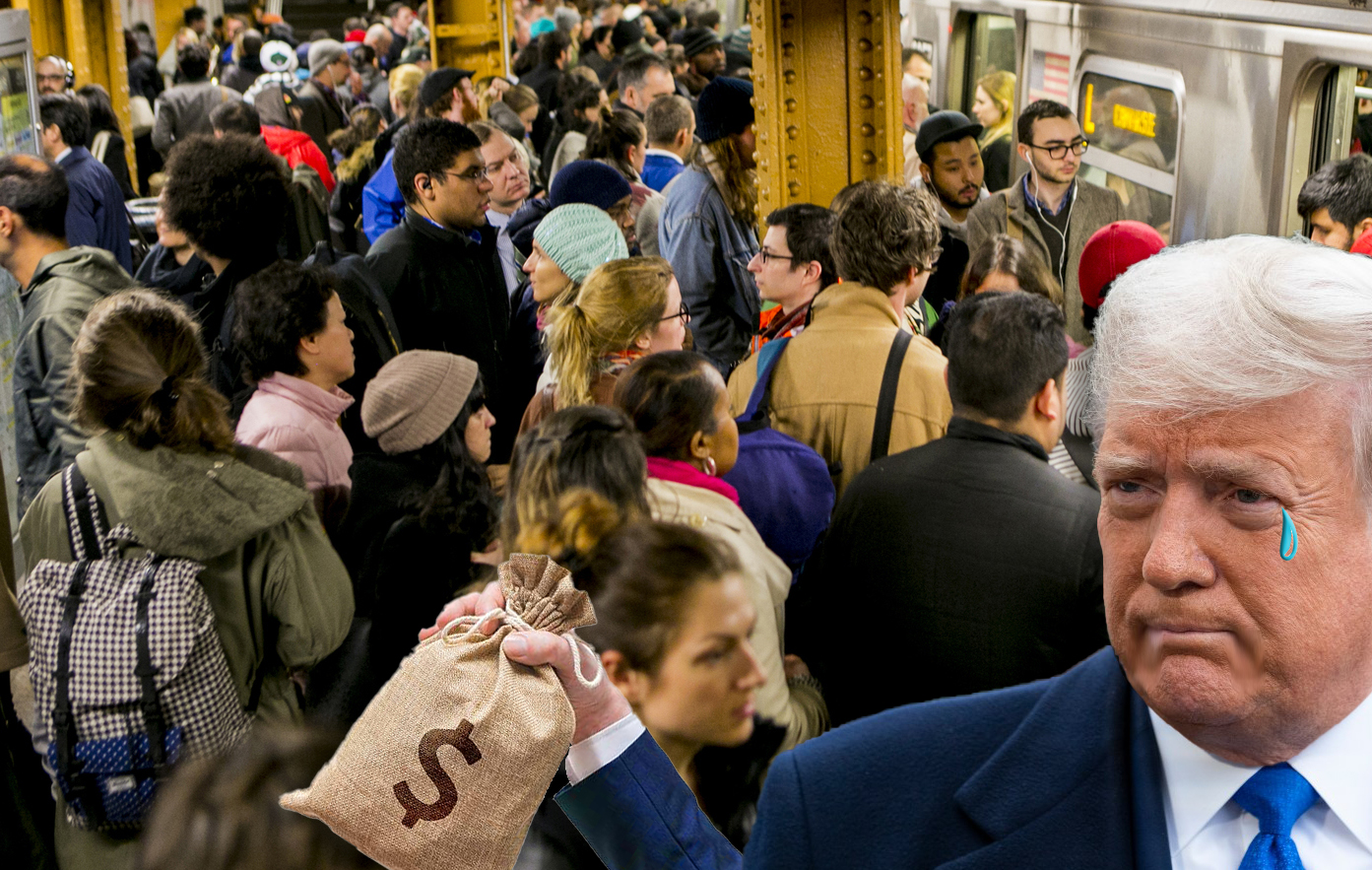In the wake of Gov. Hochul's congestion pricing flip-flop this week, some city officials were outspoken in their push for the original plan — despite their boss Mayor Adams's professed deference to the governor's stunning reversal.
Adams has expressed support for the governor — saying they'd been in touch and he's "all for her" re-evaluating the tolls — but top-level appointees in his City Hall spoke out against Hochul's move, reminding New Yorkers what they stand to lose if the plan, which is currently "suspended indefinitely," falls through.
Officials speaking out against the governor include two of the mayor's appointees to the MTA board, one of whom is a deputy mayor, his head of City Planning and the Chief of State of the city Department of Transportation.
"I’m shocked and disappointed," Adams board rep Midori Valdivia posted on her LinkedIn page. "The way I see it, today it was announced, without MTA Board consultation, the cancellation of projects such as the Second Avenue Subway Phase II, our accessibility program with elevators and escalators in our subway system, and a fully zero-emission bus fleet. There is no plan B to fund the MTA."
"If there is a pause, I believe it is within the MTA board's authority to vote on such matters," Valdivia added.
Deputy Mayor for Operations Meera Joshi, another member of the MTA board, told attendees at Transportation Alternatives' annual gala that the tolling program "needs to happen in NYC ... now," according to attendees.
“It needs to happen, it needs to happen in NYC, it needs to happen now.” NYC Deputy Mayor and @MTA board member @MeeraCJoshi on congestion pricing at @TransAlt benefit pic.twitter.com/78Da1Nk4Co
— Richard Robbins (@rich1) June 6, 2024
Adams's Department of City Planning Chair, Dan Gardonick, a former City Council member and recent mayoral appointee to the MTA board, took to Twitter to out Hochul for blowing a massive hole in the MTA's $55-billion capital program budget.
"I voted for congestion pricing in 2008 and still support it today," Gardonick posted, "But even those who don’t should be very worried about the significant — really significant — hole in the MTA 2020-2024 capital budget created by changing course right now."
I voted for congestion pricing in 2008 and still support it today, but even those who don’t should be very worried about the significant — really significant — hole in the MTA 2020-2024 capital budget created by changing course right now.
— Dan Garodnick (@DanGarodnick) June 6, 2024
Department of Transportation Commissioner Ydanis Rodriguez has yet to comment on Hochul's turn against congestion pricing. But Rodriguez's Chief of Staff, Ryan Lynch, a longtime Adams adviser, also took to Twitter to express his frustration, asking, "Why can't we have nice things?" and bashing Hochul's reported plan to replace the tolling money with a tax on small businesses.
"Killing congestion pricing in the name of small business and in turn enacting additional payroll taxes on small business is *chef's kiss* of the last 24 hours," Lynch said. "Unreal."
Killing congestion pricing in the name of small business and in turn enacting additional payroll taxes on small business is *chef's kiss* of the last 24 hours. Unreal. https://t.co/A0piKZ8xJk
— Ryan Lynch (@rmplynch) June 6, 2024
And later in the day, the mayor's public space czar, Ya-Ting Liu, also put her position out there, calling congestion pricing "the only policy" to help transit and reduce traffic.
Public transit is the lifeblood of NYC and traffic is choking our city streets. Congestion pricing is the only policy that can tackle both in an equitable and comprehensive way. The general fund, PMT, existing taxes that go into MTA are unsustainable, not enough, or regressive.
— Ya-Ting Liu (@yating_liu) June 7, 2024
The mayor has delivered mixed signals on the plan since he took office. During his 2021 campaign, he called for congestion pricing money to fix subway infrastructure, tweeting a video of a flooded 1 train station at W. 157th Street, saying "we need congestion pricing $ ASAP."
This is what happens when the MTA makes bad spending decisions for decades. We need congestion pricing $ ASAP to protect stations from street flooding, elevate entrances and add green infrastructure to absorb flash storm runoff. This cannot be New York. https://t.co/F6A5K4ahQT
— Eric Adams (@ericadamsfornyc) July 8, 2021
But on the job, as the policy grew closer to reality, the city's leader began to give in to political pressure, distancing himself from the $15 peak toll for those who choose to drive into the most congested areas of Manhattan.
In the months leading up to implementation Adams failed to offer clarity on how the tolls would benefit New York City. He often cited questionable concerns about increased pollution outside the congestion zone, even as his administration's New NY Action Plan highlighted congestion pricing as crucial to making "New York work for everyone."
The New York City Independent Budget Office, a city agency that operates independently of the mayor to provide public information about the city budget and tax revenues, also released a statement on Thursday bashing Hochul's move.
Scrapping congestion pricing will cost commuters time and money and hurt the city's economic edge, the IBO said.
"The sudden loss of this anticipated revenue coupled with the lack of any long-term financial alternative to support crucial improvements for tracks, signals, and cars, will complicate the long-term competitiveness of New York City," the agency wrote in its statement.
"To delay the program now halts decades of policy and implementation work representing unquantifiable amounts of time, money, and other resources."






